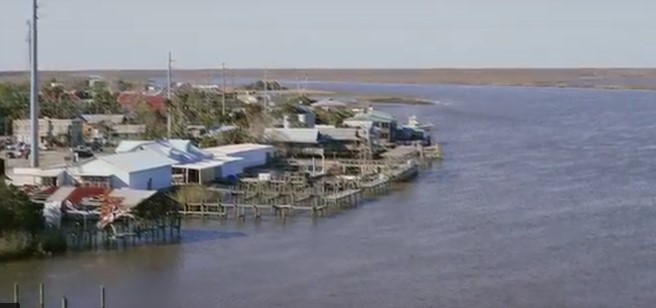By Kathleen Haughney, FSU News
Florida State University has been awarded nearly $8 million from Triumph Gulf Coast as part of a major 10-year initiative to restore Apalachicola Bay and revive the region’s imperiled oyster industry.
The project — the Apalachicola Bay Systems Initiative — will be funded by a grant from Triumph Gulf Coast, a nonprofit corporation organized to administer funds recovered by the state for economic damages that resulted from the 2010 Deepwater Horizon oil spill. The Triumph Board approved the grant at its Feb. 25 meeting in Panama City.
In addition to the money approved by the Triumph Board, FSU also will contribute $1.5 million toward the project.
“This is an extraordinary opportunity for Florida State University to participate in a hugely consequential research and community endeavor,” said Vice President for Research Gary K. Ostrander. “Our researchers, led by the FSU Coastal and Marine Laboratory, will be working to understand the problems behind the bay’s decline and to develop a science-based action plan to move forward.”
The project will be housed at the FSU Coastal and Marine Laboratory and led by Scientific Director Sandra Brooke and Marine Lab Director Felicia Coleman.
“When the oysters go away, the ecosystem changes,” Brooke said. “So, we first need to understand what is going on in the bay, and then we can move forward with developing a restoration plan.”
Over the last few decades, a variety of natural and man-made disturbances have affected oyster populations, including changes in the water flow regime, overfishing, disease and hurricanes. The collapse of the Apalachicola Bay oyster fisheries has created huge economic hardships for Franklin County. Restoration of the oyster ecosystem will improve the local economy and the overall health of the bay.
Brooke and Coleman will be working with community stakeholders, the state and other units within FSU to get the project up and running. The initial stages of the work will include major data collection on different aspects of the bay and stakeholder interviews. They also will construct a research oyster hatchery as part of the initiative.
“We want to make sure we’re asking all the right questions,” Coleman said. “While we have our own questions that are imperative for the science, we will engage immediately with the watermen — they’ve been out there for their entire lives and have a wealth of information we’re not privy to. I’ve been working with fishermen for nearly 40 years now, and talking to them provides critical information that clearly informs the science.”
Researchers plan to make all data collection available to the public via the project’s website. These data will ultimately inform a scientifically rigorous plan for restoration of the bay.
The proposal was endorsed by a number of organizations including the Franklin County Board of Commissioners, the Florida Fish and Wildlife Conservation Commission, the National Wildlife Federation, Apalachicola Riverkeeper, the Nature Conservancy and the Florida Department of Agriculture and Consumer Services’ Division of Aquaculture.

